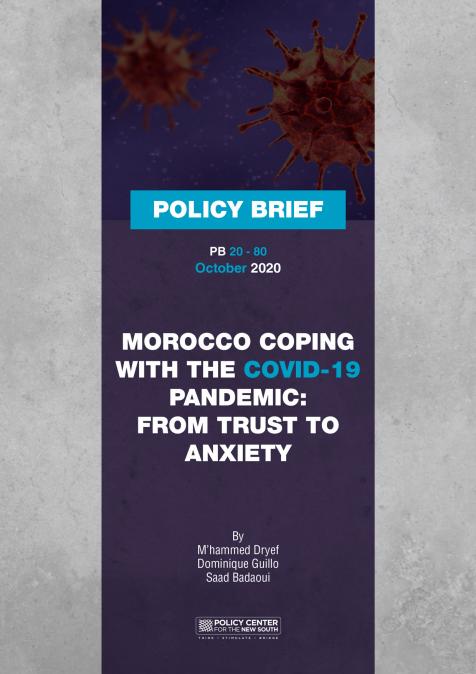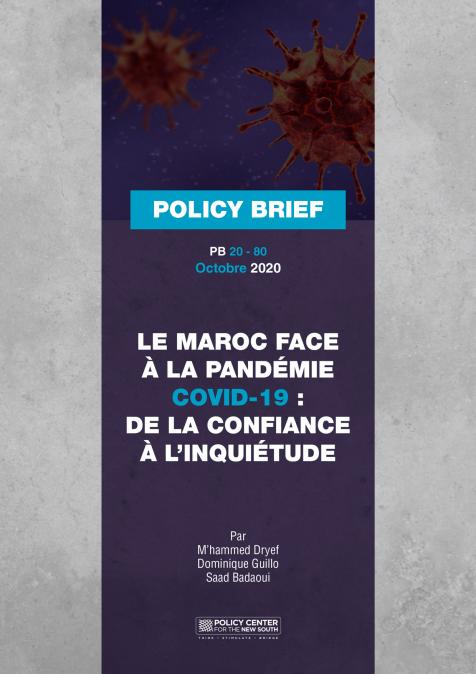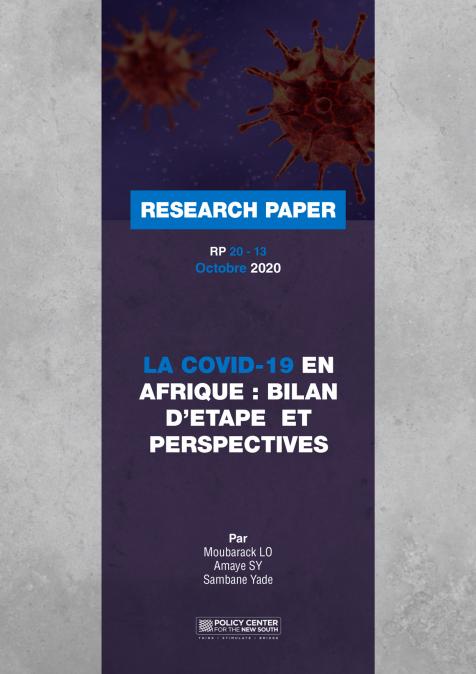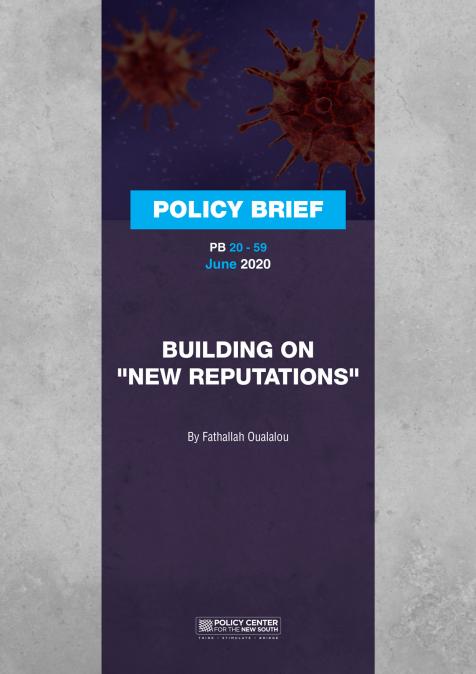Publications /
Opinion
From the moment China reported a new mysterious disease to the WHO, in the last day of 2019, the scientific community started following the situation with increasing concern. However, in many places like the UK, where I live, and Portugal, where I am from, the collective memory of recent public health crises like SARS and Ebola added up to “much ado about nothing” – a massive media frenzy that promised a pandemic but did not deliver one. That is perhaps why it took so long to register that this time it was different. In the scientific community, discussion about the coronavirus and its potential to spread landed much earlier, but that did not translate into public awareness and political response. In a crisis so reliant on science for a long-term solution, why did the now seemingly obvious consequences of the new virus take so long to reach the public sphere?
Scientific Community’s and Media responses to COVID 19
The scientific community responded early to the new virus – within a month, years of entrenched publishing rules favouring peer-reviewed commercial journals had been ripped up in favour of “open research”, to promote a faster exchange of information. The concept of “Open Research”, the sharing of research papers and knowledge free-of-charge, has been advocated by some researchers and funders for years, to a strong opposition from commercial scientific publishers. By the end of January the Wellcome Trust, one of the major Biomedical research funders in the UK, had launched a statement proposing open coronavirus data sharing and everyone who is anyone in global research signed it – from the USA’s Food and Drug Administration (FDA) to major commercial publishers to academic institutions[1]. Just like that, an incredible step was taken towards a more collaborative research community that went unnoticed in the outside world. Meanwhile, in London, life went on as usual – beyond some guidance on handwashing and travel restrictions to China, people continued to take public transport to work, attend restaurants and shows and enjoy the best that London had to offer.
If we fast-forward to the beginning of March, the world had reached a tipping point and both the media and the public had started paying attention. The virus was now spreading in Europe, particularly in the North of Italy. The media had started to cover more and more of the crisis, sometimes contributing to the spread of misinformation. As the UK registered the first evidence of community transmission towards the end of February, reports focused on the “hunt for patient zero”, a notoriously unhelpful headline. Some scientists tried to address these reporting issues – for instance, LSHTM epidemiologist Adam Kucharski repeatedly called attention to the dangers of misinformation both in his Twitter page and by writing for the Guardian newspaper[2]. Parts of the public started to react to the threat of an invisible killer by panic buying essential items like toilet paper or hand sanitiser, while others clung to hopes that the vast number of asymptomatic cases meant a much lower mortality rate than reported, or that the virus only affected the elderly and high-risk populations and so “wouldn’t affect them” – both takes potentially dangerous.
UK Government’s Reaction, Or Lack Thereof, and the Media
While media and public were beginning to stir, the UK government’s initial lack of response seemed to ignore research altogether – this seemed to be caused, not by a lack of access to scientific expertise, but a political decision not to act on it immediately. While we will not know what the UK government knew, and when, until this is all over and an independent enquiry is conducted, the UK government did have access to sound scientific expertise and data: the current Chief Medical Officer for England, Chris Whitty, was a former Professor of Public and International Health specialised in infectious diseases[3]; the UK has had an influenza pandemic preparedness plan in place since 2011, with national exercises carried out in 2016[4]; and the CMO has been advised by a Scientific Advisory Group for Emergencies (SAGE) that received data from a vast network of modellers from across the UK (the Scientific Pandemic Influenza Group on Modelling). It is not clear if the government initially failed to grasp the potential implications of the data they were shown, or if they understood the level of threat all along but took a few weeks to fully plan out a public health and economic response and launch it at a time deemed most appropriate.
In the vacuum of UK government action, the media stepped in even further to fill the gap with information from scientific experts reported to different extents of accuracy, potentially contributing to public confusion and mistrust of experts. The fact that all the scientific data is now being shared publicly provided a non-peer-reviewed, publicly available source of potential headlines for tomorrow’s newspapers. Research findings were extrapolated into headlines without accounting for uncertainty or nuance that are the hallmarks of scientific studies – for example, one headline claimed that “Coronavirus may have infected half the UK population”, based on an Oxford study modelling a range of different scenarios, that one being the most extreme. Journalists also turned to a variety of experts but not always the right ones, reaching out to clinicians or researchers without specific epidemiology expertise and leading to misunderstandings related to data interpretation. It is important to note this did not happen across the board – some journalists have been successfully distilling the wealth of available information and communicating it clearly and accurately (like Ed Yong in The Atlantic[5]), while some researchers have been launched to the spotlight to provide calm and enlightened commentary, sometimes becoming unlikely celebrities[6]. Nonetheless, the pockets of confusion and misinformation that remain, and growing public frustration at the uncertainty of the crisis (with one Portuguese journalist notably clamouring for scientists to “give us an end date”) could endanger public trust on scientists, doctors and public health experts and give rise to further discontent and unrest.
Scientists in the Spotlight
Much of the scientific community is used to operating in closed quarters where everyone speaks a language unintelligible to outsiders, full of acronyms, uncertainties and probabilities; this crisis has placed scientists in the spotlight, forcing them to communicate research results and implications to an unprecedented level. In this war of the worlds, there is often misunderstanding on what the result of a given study means. Scientific knowledge usually takes time and lots of confirmatory evidence by different groups to build a consensus, especially in a new field like this one. Scientists are used to opposing results and are not discouraged by them, recognising that they do not necessarily imply contradiction but complexity – they force us to seek nuance and context, to review and refine our models, increasing their accuracy and predictive power. The same is not true for an untrained eye, that might take the same results at face value and lead to confusion. Is it the journalists’ role to get more science-literate to improve the quality and accuracy of their reporting? Or is it the scientists’ role to place their results in greater context, now that they are being increasingly scrutinised? Traditionally researchers have not given much thought to how the non-scientific community will interpret and act upon research findings – this might all have to change now. Science is key to end the current public health crisis – to find a vaccine or other treatment that stops the virus in its tracks once and for all. It will not help end the other crises – the economic, social, human rights crises that are beginning to unfold. As scientists, we need to ask ourselves not only what we can do to address the former, but also the latter – to explore the wider impacts of the pandemic on health systems and societies, and to better communicate what we do to politicians and the public. Science communication has often been viewed by researchers as a box-ticking exercise; it is now a vital necessity that we must learn to do well to retain public trust.
The author is alumna of the 2019 Atlantic Dialogues Emerging Leaders program.
The author of this article has a PhD in Biology by the University of Cambridge, and is currently completing a Master’s in Public Health at the London School of Hygiene and Tropical Medicine.







